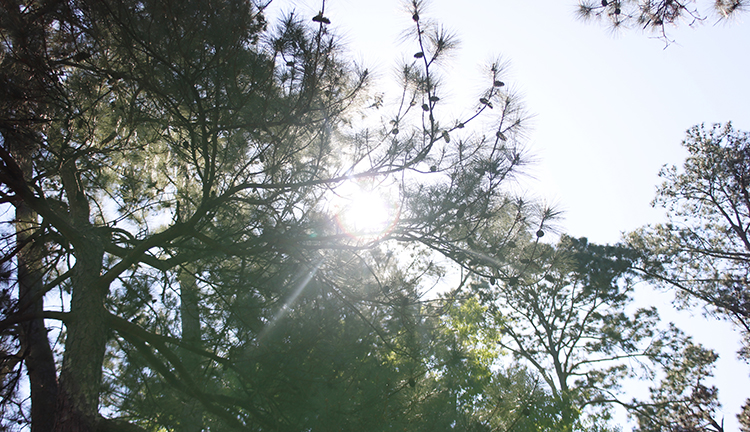Student perceptions towards Earth Day
Prakriti Adhikari/The Lion's Roar
Earth Day promotes being environmentally conscious. The day became officially recognized in 1970.
Though the university has no planned celebration on Earth Day, promotion for the meaning of the day continues.
Despite a lack of formal ceremony, the Sustainability Center has been involved in efforts, including the “Green Talks” series at the Sims Memorial Library, to promote environmental awareness. The “Earth Day 50th Anniversary” is scheduled for April 17 in the Student Union Breezeway.
Casey Burlette, a senior biological sciences major, shared what the day means to her.
“Earth Day is just kind of a day put aside to be more environmentally aware,” said Burlette. “It’s just a day to really appreciate the earth instead of abuse it.”
Alejandro Martinez, sustainability manager of Physical Plant Services, discussed the importance of Earth Day.
“Our magnificent planet is an incredibly complex and vibrant ecosystem, where living organisms interact with each other and their environment to create the ideal conditions for life,” explained Martinez. “If we educate and create awareness about plants, animals and the environment, not only us but future generation can enjoy this beautiful planet.”
Originally the result of a protest, which garnered public support for the creation of the Environmental Protection Agency and helped secure the passage of the Clean Air Act, Water Quality Improvement Act and Endangered Species Act, Earth Day became officially recognized in 1970.
Since then, the influence of the occasion has spread.
“The most significant impact is regulations that ensure we use resources wisely to reduce the damage to the environment, which provide a better standard of life to people and the ecosystem,” said Martinez.
In addition to those feats, the event has also grown globally to include participation from over 190 countries. According to the Earth Day Network, the day is the largest secular observance in the world. Denis Hayes, the organizer of the first Earth Day in 1970 and board chair emeritus of Earth Day Network, pointed out that the event’s relevance is not waning.
Hayes stated, “Despite that amazing success and decades of environmental progress, we find ourselves facing an even more dire, almost existential, set of global environmental challenges, from loss of biodiversity to climate change to plastic pollution, that call for action at all levels of government.”
According to Kathleen Rogers, president of the Earth Day Network, the need for advocacy is important.
“Progress has slowed,” explained Rogers. “Climate change impacts continue to grow, and our adversaries have become better financed. We find ourselves today in a world facing global threats that demand a unified global response.”
Burlette feels the message of Earth Day is more important than the day itself, and it should not be limited to once a year.
“I think Earth Day is there as a reminder to kind of ensure that we don’t completely throw environmental awareness out the window altogether because that kind of is where things are going,” shared Burlette.
Haleigh Jones, a junior early childhood education major, discussed the importance of being environmentally conscious.
“If you take steps every day, maybe if that’s using a water bottle multiple times or not using the Styrofoam containers, or whatever you do, if you do it every day, then really that outweighs the one holiday that is Earth Day,” said Jones.
Your donation will support The Lion's Roar student journalists at Southeastern Louisiana University.
In addition, your contribution will allow us to cover our annual website hosting costs.
No gift is too small.







